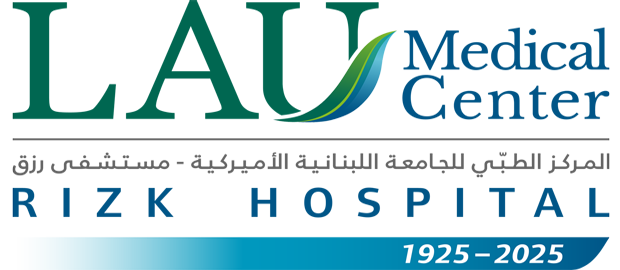General Surgery Residency Program
The Lebanese American University Gilbert and Rose-Marie Chagoury School of Medicine is dedicated
to providing a comprehensive General Surgery Residency Program.
Each year a select number of qualified individuals are chosen to join the program. We provide a
one-year preliminary track or a five-year categorical track.
The preliminary track allows a broad range of training without the expectation to complete the
program at our institution. This track includes rotation in General Surgery, Cardiothoracic
surgery, Vascular Surgery, ER, Urology, Anesthesia, Head and Neck, ICU, and Orthopedics.
The categorical track involves a 5-year training program that comprises of research
opportunities, academia, workshops, practice and systems-based learning, preoperative and
postoperative patient care, surgical skills, clinical training. This track provides training
across a number of subspecialties that includes Vascular Surgery, Hepato-Pancreatic Biliary
Surgery, Colorectal Surgery, Breast Surgery, Digestive Disease Surgery, Endocrine Surgery,
Surgical Oncology, Trauma and Critical Care.
The division of General Surgery provides residents with a high-level of training from our
dedicated faculty. The aim of our program is to produce exceptional future surgeons.
The program follows the six ACGME-I core competencies for training, teaching, and
assessment:
1. Professionalism
2. Patient Care and Procedural Skills
3. Medical Knowledge
4. Practice-based Learning and Improvement
5. Interpersonal and Communication Skills
6. Systems-based Practice
Modalities:
- Medical knowledge
- ABSITE (minimum 20th %tile)
- MyEvals platform evaluations
- Procedures log
- Attendance
- Presentations
Program Structure:
Residents will rotate at the following Medical Center sites:
- LAU Medical Center-Rizk Hospital, Achrafieh
- LAU Medical Center-St. John Hospital, Jounieh
- Rafic Hariri University Hospital (RHUH)
- Clemenceau Medical Center (CMC)
Weekly Academic & Medical Conferences:
- M&M Cases
- Journal Club
- Case Presentations
- Tumor Board
- ABSITE Review
To apply for General Surgery residency program:
medicine.lau.edu.lb/education/gme/admission.php
Urology Residency Program
The Urology residency program at the Lebanese American University-School of Medicine (LAU-SOM)
and LAU Medical Center-Rizk Hospital (LAUMC-RH) is a competency-based curriculum. The six
ACGME-I core competencies are the focus for training, teaching, and assessment.
Our program is a 5-year post-graduate training program that started in 2013. The main clinical
training sites are the LAU medical centers “LAU Medical Center-Rizk Hospital (LAUMC-RH)
and soon LAU Medical center-St. John Hospital (LAUMC-SJH)”. The affiliated hospital in
Lebanon is Clemenceau Medical Center (CMC).
Resident selection for PGY1 spot takes place during their Med-4 year. One Resident is selected
every year for the PGY1 Urology spot.
A PGY1 resident who successfully finishes his/her preliminary year in Surgery may fill vacant
position at PGY2 level.
We have five residents at a time in the program. One preliminary PGY-1 resident rotates in
Surgery. Two junior Urology residents (one PGY-2 and one PGY-3) rotate at LAUMC-RH and
LAUMC-SJH. Two senior Urology residents (one PGY-4 and one PGY-5) rotate at LAUMC-RH and CMC.
Our Mission is to graduate proficient urologists. The faculty of the Urology residency program
are top-class role models who provide trainees with the ability to develop their ethical and
professional behavior, and to acquire the interpersonal and communication skills mandated to be
outstanding physicians.
The healthy environment for learning and the appropriate guidance help the trainees in acquiring
the cognitive and psychomotor skills needed for independent, safe and evidence-based practice in
order to compete with local and international Urology graduates.
Our vision is to graduate highly qualified clinical and academic Urology teachers, and to
recruit outstanding graduates who will join the LAU Urology residency program in order to move
it forward and continuously improve it.
Our educational activities are:
a- Daily Teaching Rounds.
b- Outpatient Clinics with active participation in patients’ assessment.
c- Weekly Urology conferences: Didactic Instructions, Case-Based Discussion, M&M Meetings,
and Journal Club.
d- Monthly: National Urology conferences supervised by the Lebanese Urology Society with all
national Urology programs.
e- Monthly: Common Lectures with other LAU residency programs.
f- Training on Procedures: Office-Based, Endoscopic, Open, and Laparoscopic/ Robot-Assisted
procedures.
Urology residents are assessed using formative and summative assessments. The six ACGME-I
Urology competencies are assessed using the related sub-competencies. Our assessment tools are:
a- Mini-CEX: Formative and Summative.
b- Chart Stimulated Recall (CSR): Formative and Summative.
c- Direct Observation of Procedural Skills (DOPS): Formative and Summative.
d- Knowledge Tests: Local MCQs’ exams and EBU ITE, Summative.
e- 360 Evaluation (Multi-Source Feedback): Formative.
f- Global Rating (GR): Summative.
g- Portfolio Assessment: Formative and Summative.
Our division’s research initiatives are centered on identifying research opportunities as
they unfold during the program years. In 2020, we started to provide our residents with
appropriate training and guidance on clinical research. We hope to initiate, in the near future,
a productive research program based on solid ground in order to move the Urology knowledge
forward. Our long-term aim is to be internationally recognized as contributors in filling the
knowledge gaps in Urology.
Together we learn, together we move forward. We do our best to turn our residents into
outstanding urologists.
If we can be of any assistance to you in providing other information about the Urology-training
program here at LAU-SOM and LAUMC-RH, please let us know!
To apply for Urology residency program:
medicine.lau.edu.lb/education/gme/admission.php

































